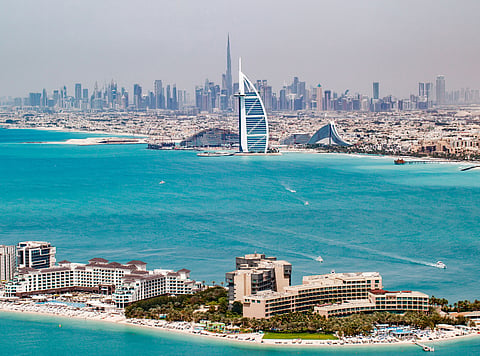Airbnb: Dubai property market will attract more funds as Europe cuts short-stay listings
Dubai short-stay rental market continues to grow - and that's what investors care about

Dubai: Each time a European city places restrictions on Airbnb listings, investments in Dubai’s short-stay rental market get an immediate boost, according to industry sources.
“The Dubai property market saw that happen when Greece put limits on short-stay listings last year, and whereby global investors looked to Dubai to place their funds in real estate,” said Vinayak Mahtani, CEO of bnbme, a property management consultancy focusing on holiday homes.
“You feel the same thing will happen with Spain being the latest to set restrictions on Airbnb listings.
“The Dubai short stay rental market can easily absorb more investments into the category. Investors-landlords see the solid yields the rental market in Dubai is generating and that’s all they need to make up their minds.”
Now, some popular travel destinations in Europe have voiced concerns about 'over-tourism' and how short-stay homes are actually creating conditions for sustained spikes in the wider rental market. This is why the restrictions on Airbnb listings are happening.
Spain, Greece set limits
It was this week that Spain ordered Airbnb to cut its listings in the country by nearly 66,000 homes, over concerns related to ‘over-tourism’ and rental spikes within the domestic market. As for Greece, new restrictions came into effect earlier this year, which include no new short-stay property listings in select areas of Athens, etc.
In Dubai, short-stay listings number around 30,000-40,000 properties. “But they are nowhere near the 130,000 hotel rooms and hotel apartments in the city,” said Mahtani. “There are also strict rules set by Dubai Department of Economy and Tourism on upkeep of properties meant for short-stay rentals, how they should be rented out, and what the companies engaged in this business need to follow.
“Most important, all the way back in early 2000, the authorities made it clear that developers could not interfere in allowing properties in their buildings to be rented out for short-stays. Unless there are clear provisions in the SPA (sales and purchase agreement).
“This meant a rules-based industry could grow unimpeded through the years. That’s exactly the foundation property investors need.”
Now, in recent months, some property investors have shifted their units from short stays to the 1-year rental market, which in Dubai continues to see 5%-15% average increases on new renewals. Even then, there are more investors/landlords entering the short stay market, and the pace could grow in the weeks after summer.
“Airbnb is continuing to grow as Dubai remains a big travel destination - and yes we are seeing a growth due to the clamp down (other markets,” said Anna Skigin, co-founder of the property firm Frank Porter, who puts the number of short-stay rental listings in Dubai at over 30,000 units.
Dubai will continue to see more apartment buildings getting handed over through the rest of 2025 and succeeding years, which will also feed the rental market. Both the 1-year leasing space and the short-stays.
Sabine El Najjar, Chief Commercial Officer and General Manager at Silkhaus, reckons the rules are already in place to regulate the short-stay rental market - and to do it well.
"The UAE has long taken a proactive and collaborative approach to regulating the short-term rental (STR) market," said Sabine.
"By working closely with the private sector, authorities have ensured that investors can tap into this opportunity with clarity and confidence, while prioritizing guest safety and resident well-being.
"As such, we don’t foresee any disruption or risk to our operations."
And if some investor who was looking at buying a property in Spain or Greece to rent it out for Airbnb, then he could well change direction and put those funds into play in Dubai.
"That's exactly what's happening," said Mahtani. "The Dubai short-term property market can easily absorb more..."
Sign up for the Daily Briefing
Get the latest news and updates straight to your inbox



